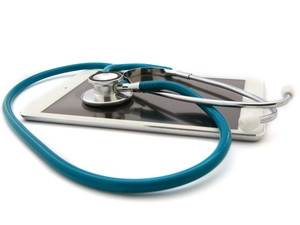
As government looks to expand its reliance on mobile technology in the provision of healthcare, the City of Johannesburg has added to the growing mix, piloting a health information system aimed at improving efficiency at healthcare facilities.
The city recently unveiled a pilot of theHealthSource (THS) - an electronic patient record-keeping system - at Slovoville Clinic south of Johannesburg, as part of a partnership with private sector constituencies, including Anglo American and others from the Southern African Development Community.
According to the City of Johannesburg, the solution offers the opportunity of following the health of the individuals over time, irrespective of healthcare provider, place of residence or source of funding for the healthcare. In a recent statement, the city said the system and data are "secure and confidential, and constant vigilance is maintained".
Dr Brian Brink, chief medical officer at Anglo American, notes Slovoville residents who used to get health services from a container or even travel far to hospitals will be "the first in the public sector to be underpinned by an electronic health information system developed by Anglo American". He adds the system - which the mining giant first trialled at its Mpumalanga operations before partnering with the City of Joburg - will improve efficiency in health services.
The city says THS is available through "secure Web-based transacting and ensures a single patient medical record is used by varied healthcare workers, appropriate medical testing is done without duplication, advised interventions occur and enhances medical decision-making about treatment and care".
More m-health solutions
TheHealthSource promises the following:
* Secure, confidential access via the Internet.
* Direct data capture by health providers while they work, limiting if not avoiding the need for data capturers after the event.
* Bottom-up approach inclusive of primary healthcare or general practitioners.
* Transactional system which is diagnosis-driven and task-flow based.
* Its guided healthcare process leads to standardisation of activity.
* Its system ensures accuracy of all critical data.
* It eliminates manual reporting through automated electronic reporting from electronic healthcare transactions.
* Real-time reporting of key performance indicators through its health dashboard.
* Data can be easily uploaded to collated data reporting systems.
Meanwhile, Owen Heckrath, COO at mobile health (m-health) solutions company Cell-Life, says his company has been working closely with the Department of Health to carry out research into how problems can be addressed using mobile technology.
"We've also been looking at solutions in which trained community healthcare workers are equipped with mobile phones and they are able to register information from different households for potential tuberculosis cases and pre-natal care for pregnant women. It is also being extended to encompass chronic disease management.
"People with different conditions have their information captured and could be referred to clinics. The healthcare workers are also in position to deliver on behalf of dispensaries at clinics, meaning patients don't have to wait at clinics," he said.
Heckrath notes the technology-driven solutions are helping government keep more accurate tabs on the supply of treatment as well as how patients are adhering to prescriptions.
Share